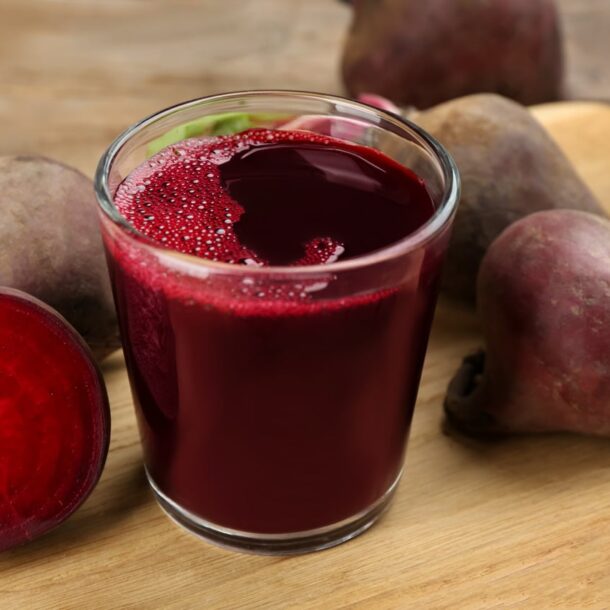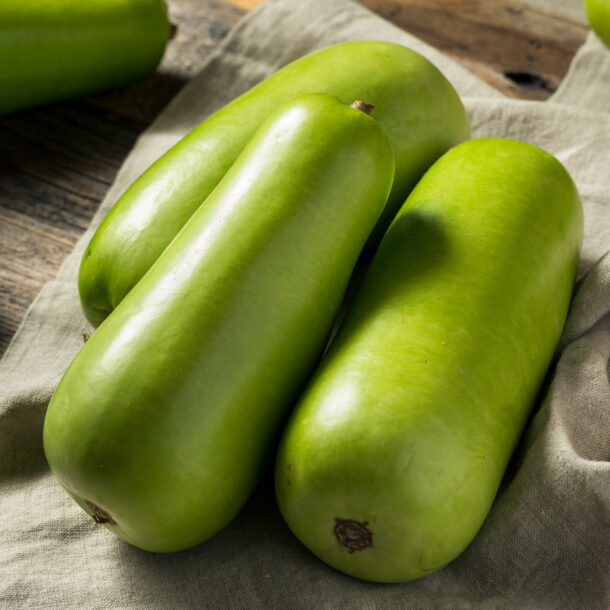
A Nutritionist's Guide To Plant Based Eating: HealthifyMe
Nutrition

Shraddha Singh
February 1, 2024
In a world brimming with diverse dietary choices, adopting a plant based lifestyle has gained remarkable traction, driven by a deep desire to nourish our bodies, protect the planet we call home, and uphold a sense of compassion for all living beings.
A plant based diet is focused on eating mainly fruits, vegetables, whole grains, legumes, nuts and seeds. It emphasises filling your plate with these nutrient-dense plant foods while limiting or avoiding animal products like meat, dairy, eggs and seafood. Although it may sound synonymous, a vegan diet totally eliminates all animal products, even honey! Plant based diets are sustainable, and ethical and have been shown to prevent and even reverse many chronic diseases.
Studies have shown that a plant based diet can significantly lower the risk of obesity, heart disease, type 2 diabetes, and high blood pressure. When we choose plants over animal products, we open ourselves up to a wealth of vitality and well-being. Packed with essential nutrients, fibre, antioxidants, and phytonutrients, plant based foods fuel our bodies and support our overall health. But the benefits of plant based eating extend far beyond our well-being. Our dietary choices hold the power to shape the world around us. By embracing a plant based lifestyle, we become active participants in creating a sustainable planet. By reducing our reliance on animal products, we lighten the strain on precious natural resources, minimize our carbon footprint, and work towards a future that is environmentally balanced and resilient.
Yet, there is another profound aspect to plant based eating—a sense of ethical responsibility and compassion. By choosing plant based options, we consciously opt out of systems that perpetuate animal suffering and exploitation. With each plant based meal, we contribute to a more humane world.
The Plate Method
As you embark on your plant based journey, ensuring that your diet is well-balanced and meets your nutritional needs is essential. The plate method is a wonderful and effective technique that helps us visualise how to organise those food groups. Building a plate with the right proportions of fruits, vegetables, whole grains, legumes, and nuts/seeds is key to achieving a well-rounded and satisfying plant based meal.
> Start by filling half of your plate with colourful fruits and veggies. These provide essential vitamins, minerals, and antioxidants for your overall health. Aim for variety, including leafy greens, bright vegetables, and delicious fruits.
> Next, allocate a quarter of your plate to whole grains like brown rice, quinoa, or whole wheat bread. These give you sustained energy and important nutrients. Choose minimally processed options for maximum benefits.
> Another quarter of your plate should be dedicated to protein-rich legumes like beans, lentils, or tofu. They provide plant based protein, fibre, and essential minerals. Don’t be afraid to try different varieties to add excitement to your meals.
> Lastly, include some nuts or seeds for healthy fats and additional nutrients. Sprinkle some crushed nuts or seeds over your dishes or enjoy them as a snack. They add a satisfying crunch and provide important nutrients.
Enhance your plant based meals with herbs, spices, and healthy condiments. Fresh herbs like basil, cilantro, and parsley add flavour and antioxidants. Spices like turmeric, cumin, and cinnamon offer taste and potential health benefits. Use healthy condiments like tahini, hummus, or salsa for creaminess and tanginess. Enjoy the delicious and nutritious flavours they bring to your dishes!
Ensuring an adequate protein intake is essential, and plant based options offer a diverse range of nutritious choices:
- Seitan: Boasting an impressive 75g of protein per 100g, seitan is ideal for crafting cold cuts or forming sausages.
- Lentils: Varied lentil varieties provide up to 25g of protein per 100g, establishing these pulses as a nutrient powerhouse.
- Tofu: Versatile tofu, with approximately 16g of protein per 100g, readily absorbs marinades and spice mixes, offering a low-calorie source enriched with iron and calcium.
- Beans: Most bean types contribute around 15g of protein per cooked cup (170g), promoting benefits such as cholesterol reduction, blood sugar management, lowered blood pressure, and belly fat reduction.
- Green Peas: Nearly 9g of protein per cooked cup (160g) makes green peas a protein-rich alternative, slightly surpassing the protein content of a cup of dairy milk.
- Oats and Oatmeal: A 100g serving of oats provides approximately 12.5g of protein, making them a wholesome choice for a protein boost.
- Nuts, Nut Butter, and Seeds: A one-ounce (28g) serving contains 5–7g of protein, varying by variety. Almonds, for instance, offer 6g of protein, contributing to a well-rounded plant based protein intake.
Ensuring a well-rounded intake of essential nutrients is crucial for those following a plant based diet.
Iron Sources:
- Red Lentils: 3.3mg iron per 100g serving
- Dark Chocolate (high-cocoa): 11.9mg iron per 100g
- Kidney Beans (cooked): 2.9mg iron per 100g
- Tofu (firm): 3mg iron per 100g
- Spinach (cooked): 3.6mg iron per 100g
Tip: Boost iron absorption by pairing with vitamin C-rich fruits or vegetables.
Calcium Sources:
- Tofu (calcium-set): Up to 400mg calcium per 100g
- Almond Milk: Around 120mg calcium per 100ml
- Leafy Greens (kale, spinach, chard, cabbage): Nearly 300mg calcium per 100g
- White Beans: 62mg calcium per serving
- Broccoli: 47mg calcium per 100g
Tip: Enhance calcium absorption by pairing with vitamin D-rich foods.
Zinc Sources:
- Pumpkin Seeds: 2-4 mg zinc per 1/4 cup
- Baked Beans (cooked): 2-4 mg zinc per 3/4 cup
- Tempeh (cooked): 2-4mg zinc per 3/4 cup
- Plant Based Yogurt: 1-2mg zinc per 3/4 cup
- Plant Based Milk: 1-2mg zinc per 1 cup
- Bran Cereal: 1-2mg zinc per 3/4 cup
- Wild Rice (cooked): 1-2mg zinc per 1/2 cup
- Nuts (peanuts, cashews, almonds): 1-2mg zinc per 1/4 cup
- Lentils (cooked): 1-2mg zinc per 3/4 cup
- Chickpeas, Black-Eyed Beans, Split Beans (cooked): 1-2mg zinc per 3/4 cup
- Sunflower Seeds: 1-2mg zinc per 1/4 cup
- Cashew Butter: 1-2mg zinc per 2 tbsp
- Tahini: 1-2mg zinc per 2 tbsp
- Soy Nuts: 1-2mg zinc per 1/4 cup
Tip: Enhance zinc absorption through soaking, sprouting, fermenting, or blending plant foods.*
With its reliance on vegetables, legumes, grains, herbs and spices, Indian cuisine offers a diverse array of dishes and flavours perfect for plant based eating. Many traditional Indian recipes and meals are already vegan or can be easily adapted. Staples like dal, vegetable curries, pulao, raita and chutneys form a nutritious vegan base. Protein-packed legumes feature prominently – think lentils, chickpeas, and black grams. Spices like turmeric, cumin and coriander boost flavour and nutrition. Minimally processed whole grains like rice, millet and wheat lend fibre. Produce ranges from potato, peas and pumpkin to coconut, banana and mango. With menus spanning hearty dals and curries, aromatic biryanis and wholesome dosas, Indian cooking makes savouring and nourishing plant based meals an utterly delicious endeavour.
| Sample 1-Day Meal plan | |
| Meal Category | Food Items |
| Breakfast | – 2 Ragi dosas with coconut chutney |
| – 1 cup soy milk | |
| – 1 small banana | |
| Morning Snack | – 1 cup melon cubes |
| – 10 raw almonds | |
| Lunch | – Brown rice vegetable pulao with peas, carrots, beans |
| – Chana masala (chickpea curry) | |
| – Tofu raita | |
| – 1 multigrain chapati | |
| Evening Snack | – Baked samosa with tamarind date chutney |
| Dinner | – Dal makhani (black lentils and kidney beans in tomato sauce) |
| – Baingan bharta (roasted eggplant mash) | |
| – Jeera rice | |
| – Roti | |
| – Salad (cucumber, tomato, carrot) | |
| Dessert | – 1 cup coconut milk kheer |
Conclusion
Adopting a plant based diet centred around fruits, vegetables, whole grains, legumes, nuts and seeds provides tremendous benefits for our health, the environment and animals. Ensuring nutritional needs are met simply requires a bit of know-how. This article has covered plant based protein options, key nutrients to focus on, and techniques like the plate method for balanced meals. Indian cuisine already embraces many nutritious and delicious vegan dishes as well. With a little planning to eat a diverse mix of plant foods, going plant based can be simple and rewarding. The world of plant based eating offers an abundance of nutrients to nourish ourselves in body, mind and spirit. Our food choices support sustainable food systems in harmony with the planet. And each plant-powered meal lets us live out a sense of compassion. A plant based diet truly allows us all to eat well and do good. Would you give “veganuary” a chance?
References
- Singer, P. (2009). Animal Liberation: The Definitive Classic of the Animal Movement. Harper Perennial Modern Classics.
- Melina, V., Craig, W., & Levin, S. (2016). Position of the Academy of Nutrition and Dietetics: vegetarian diets. Journal of the Academy of Nutrition and Dietetics, 116(12), 1970-1980.

About the Author
Shraddha Singh is a skilled nutritionist holding a Master of Science in Food Science and Nutrition. Leveraging her academic research on starch digestibility and its metabolic impacts, she aims to apply evidence-based nutrition insights to advance public and planetary health. Shraddha has diversified experience consulting clients, researching, and developing specialized food products. Driven by her passion for nutrition, she is committed to sharing her knowledge to empower individuals in their health and well-being.
Related Articles
2023 Bodyfender @ All Rights Reserved


